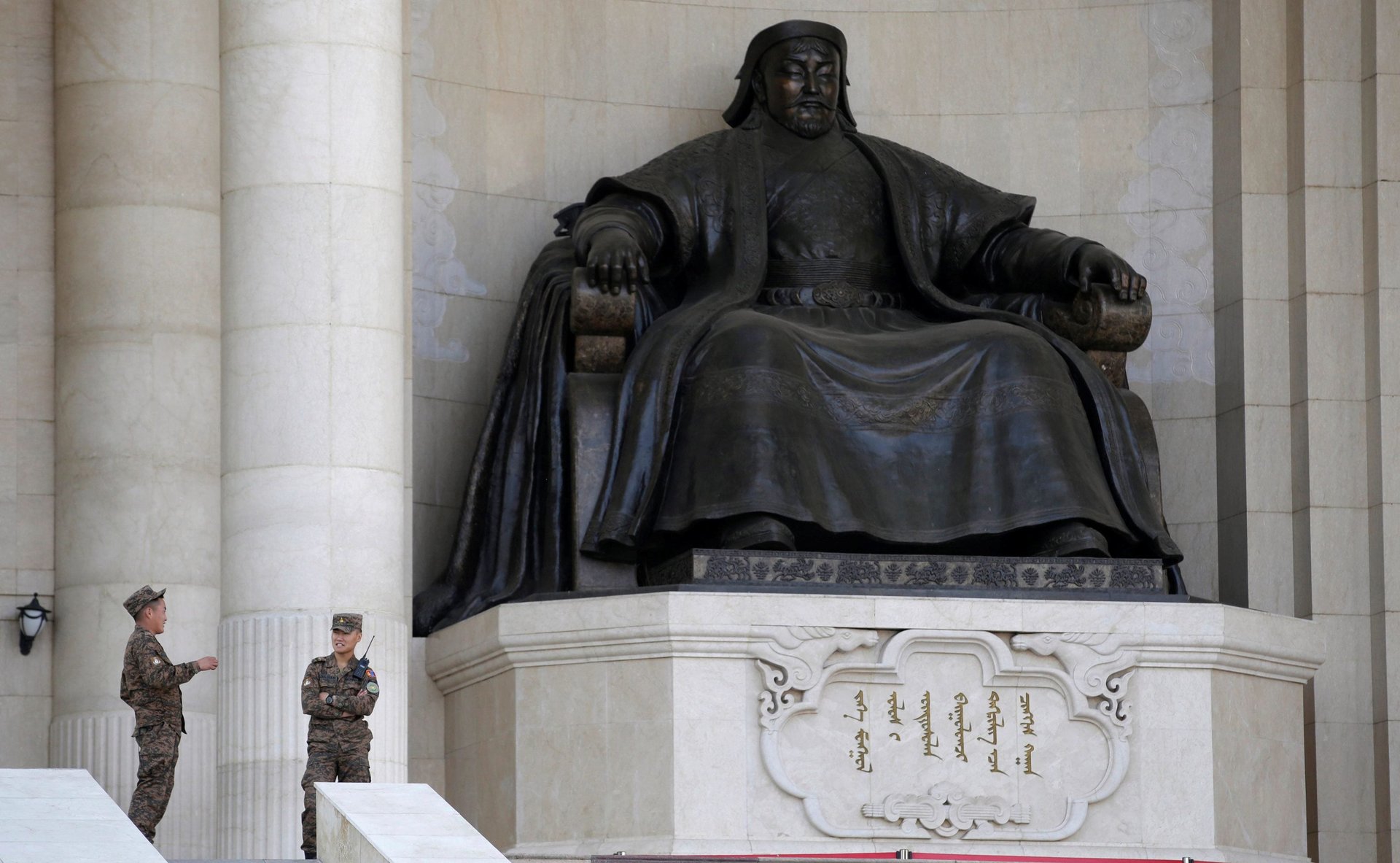When it comes to North Korean diplomacy, keep an eye on Mongolia
When US president Donald Trump and North Korean leader Kim Jong Un held a summit in June, Singapore was chosen as the venue over other ideas that were floated, including Mongolia. Now the landlocked central Asian country could have another shot.


When US president Donald Trump and North Korean leader Kim Jong Un held a summit in June, Singapore was chosen as the venue over other ideas that were floated, including Mongolia. Now the landlocked central Asian country could have another shot.
As anticipation for a second Trump-Kim summit later this year mounts, Mongolian president Khaltmaagiin Battulga this week seized the opportunity of the 70th anniversary of the establishment of diplomatic ties between the two nations to invite Kim to visit the country. In an interview with Russian media outlet Sputnik, Mongolia’s foreign minister also said that his country was ready to host Trump and Kim if they decide to go ahead with a second summit.
It appears that Mongolia has been working behind the scenes to smooth tensions on the Korean peninsula. Japanese news agency Kyodo reported today (Oct. 19) that a top Japanese intelligence official close to prime minister Shinzo Abe held meetings with senior North Korean officials in Mongolian capital Ulaanbaatar earlier this month. According to an unnamed official to Kyodo, the two sides discussed the issue of Pyongyang’s abductions of Japanese citizens in the 1970s and 1980s. The issue is a major sticking point for the Abe government, and its insistence on resolving the issue has at times left it sidelined (paywall) in the recent rounds of North Korean diplomacy.
The meeting between Japan and North Korea in Mongolia took place shortly after Abe met with Mongolia’s leader in September in Russia, where the two sides agreed to work together to resolve the abductions issue, according to a report of the meeting by Japan’s foreign ministry. Mongolia has hosted talks on other occasions between Japan and North Korea.
Mongolia is one of the few nations in the world that has maintained consistently friendly relations with Pyongyang, and was the second country to recognize North Korea after the Soviet Union. Kim Il Sung, Kim Jong Un’s grandfather, visited Mongolia twice (the country was ruled by a communist regime at the time). More recently, Mongolia’s former president Tsakhiagiin Elbegdorj visited Pyongyang in 2013, with the goal of positioning Mongolia (paywall) as a mediator between North Korea and the rest of the world, while presenting itself as a model of economic development for Mongolia to learn from. Elbegdorj also touted the country’s neutrality earlier this year as a reason for why a Trump-Kim summit should be held in Mongolia:
Mongolia’s foreign minister, meanwhile visited North Korea in February.
“Mongolia’s unique relationship with and access to the DPRK’s leadership has primarily proven to be a most valuable asset in boosting Mongolia’s profile in the region and the world at large,” wrote Tjalling Halbertsma, a scholar and former diplomat in Mongolia, in a study on Mongolia-North Korea relations published in 2014.
As a nation of just 3 million people sandwiched between major superpowers in a neighborhood fraught with geopolitical difficulties, Mongolia has long sought to cultivate ties with countries beyond its borders as a way to counterbalance Russia and China’s influence, also known as the “third neighbor” policy. And while it’s maintained friendly relations with North Korea, Ulaanbaatar has complied with United Nations sanctions, kicking out over a thousand North Korean workers late last year (a recent visit by this reporter to the site of a former North Korea restaurant in the Mongolian capital found that the restaurant had changed its name and no longer housed any visible evidence of being a North Korean establishment).
Mongolia’s diplomatic strategy mirrors to some extent Singapore’s playbook, which has allowed the city-state to play host to various major international events over the years, including a historic meeting between the leaders of Taiwan and China in 2015. It could be Mongolia’s chance to bask in the spotlight next.